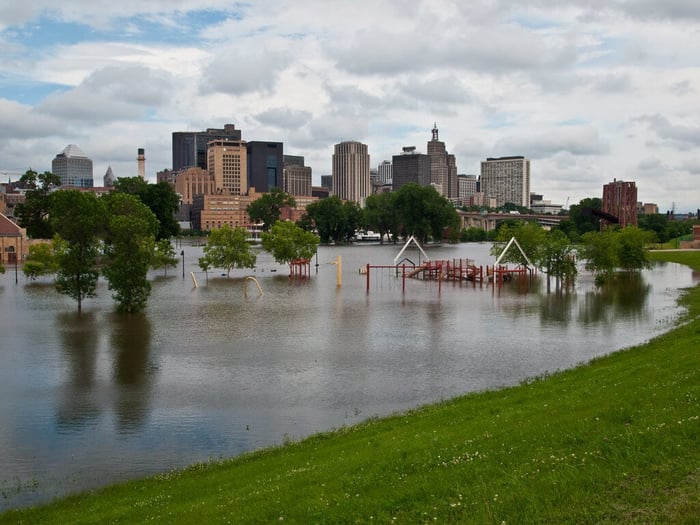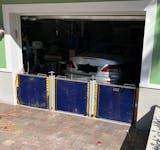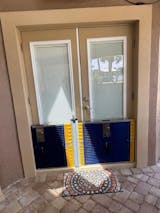The recent destructive floods all over Europe, along with hurricanes in the United States and Asia, has brought up a pretty new topic, which might have been ignored for too long. How do we prevent flooding in cities?

Indeed, floods have always been mostly associated with rural areas near rivers, lakes, or coastal settlements. However, today flood is a part of urban life just like heavy traffic and overpopulation. Moreover, due to architectural peculiarities and a dense population in big cities, floods become much more destructive than in some villages, where buildings stand apart. There is plenty of open soil that can soak water r, preventing massive floods.
Moreover, floods in cities can seriously affect the world economy, which has already suffered greatly due to the pandemic, social unrest, and numerous other critical factors of the past several years.
While small businesses and private companies are the backbones of the global economy, they are mostly located in urban areas. Destructive floods cause fatal damage to such businesses, making them too risky and uncertain today, preventing the economy from restoration and depriving millions of people of workplaces.
That is why during the past several years, the main goal of architects, urbanists and local authorities is to help incorporate urban life into the environment, turning cities from the main cause and target of modern floods to a means that would help prevent floods and minimise their damage.
This article will go over the most anticipated solutions that have already proven effective and help prevent flooding in various regions worldwide.
Sponge Cities

the concept of sponge cities was born in Asia - a region that historically suffers from hurricanes and typhoons and therefore might be one of the most advanced in the search a ways to prevent flooding caused by those natural disasters.
The idea of a Sponge City is to try and benefit from floodwater rather than seeing it as a danger and simply try to fight or flunk it away.
A Sponge City should have a pretty complicated but efficient draining system that would help absorb floodwater and water from heavy rainfalls and then spread it among the city`s vital needs. This approach can help prevent flooding as it needs the floodwater and uses it immediately instead of blocking it out with sandbagging and dikes.
The water can be used for irrigation of city gardens, cooling systems, cleaning and other needs. With a proper approach, floodwater can even be converted into pure drinking water resolving one of the most urgent crises humanity faces today.
In other words, instead of exp; noting nature resources and destroying the ecosu=ystems, sponge cities can help to simply use what literally floats in our hands.
Unfortunately, there is a pretty massive pitfall on the Sponger City project as the experiment has started in the infamous region of Wuhan, China. Due to the recent events, the deployment of sponge cities has stalled greatly, and today, it is still hard to say whether the experiment will be finished at all and sponge cities will become our "new normal" in the observable future.
Rooftop Gardens

One of the main flood risks of urban areas is that most surfaces are solid, covered with tarmac or asphalt,w which doesn`t allow water to soak in.
In other words, the more gardens and parks we have in our cities, the bigger are the chances to prevent flooding. And while the land in urban areas is getting more and more expensive every day, it is hard to provide city dwellers with enough open recreational areas and rooftop gardens, which are becoming more and more popular in today`s Europe, can also prevent flooding working just like on-land parks.
Moreover, rooftop gardens can solve additional urban issues, accumulating rainfall water and using it for the building`s sanitary needs. That way, people who live or work in a house with a rooftop garden don`t have to waste up to 7 gallons of clean water for, let`s say, a toilet flush.
Keep sewers clean and separated from drainage.

The next idea may not look too innovative and conceptual, but it is one of the most efficient ways modern cities can prevent flooding and avoid its destructive consequences.
While sewage goes through the same pipes as drained water, the network can easily get overloaded and collapse under the pressure of heavy rainfall or a flash flood. Separating these two types of water typical for urban areas will have to ease the burden on the traditionally exhaust systems.
Moreover, even if the flooding or rainfall appears so heavy that the separated drainage fails, the most devastating and damaging consequences can still be avoided as soon as sewage is drawn out of the picture. The so-called type-3 water damage, which includes sewage contamination, is usually the toughest and most expensive to deal with.
Separating sewage and draining, cities literally kill 2 birds with one stone: prevent flooding and minimise its consequences if the disaster strikes after all.
Personal responsibility

No matter how competent and forward-thinking your local authorities can be, it is essential that each resident takes personal responsibility and thinks about individual measures that help to prevent flooding and minimise its consequences.
Flood barriers or temporary flood gates are innovative, effective and easy to install devices, which will help you keep floodwater away from your house or business. Even if the disaster strikes, it will not have such harsh and massive consequences on your life and local economy once you don`t have to claim massive losses, or your business can open its doors as soon as the water retreats.
Contact Dam East Flood Barriers today and learn about innovative solutions that will help you protect your city business or property from flooding and make your life safe driving one of the most sinister and probable dangers of modern climate away from your door.
Flood Barrier Door Dam - Ultimate Flood Gate

$1,439.00
DAM EASY® FLOOD GATE - DOOR DAM Floods are becoming more common around the world. What was once a 100-year phenomenon is now a seasonal trend that homeowners must deal with. That’s EXACTLY why you need this Dam Easy Flood… Read More


















